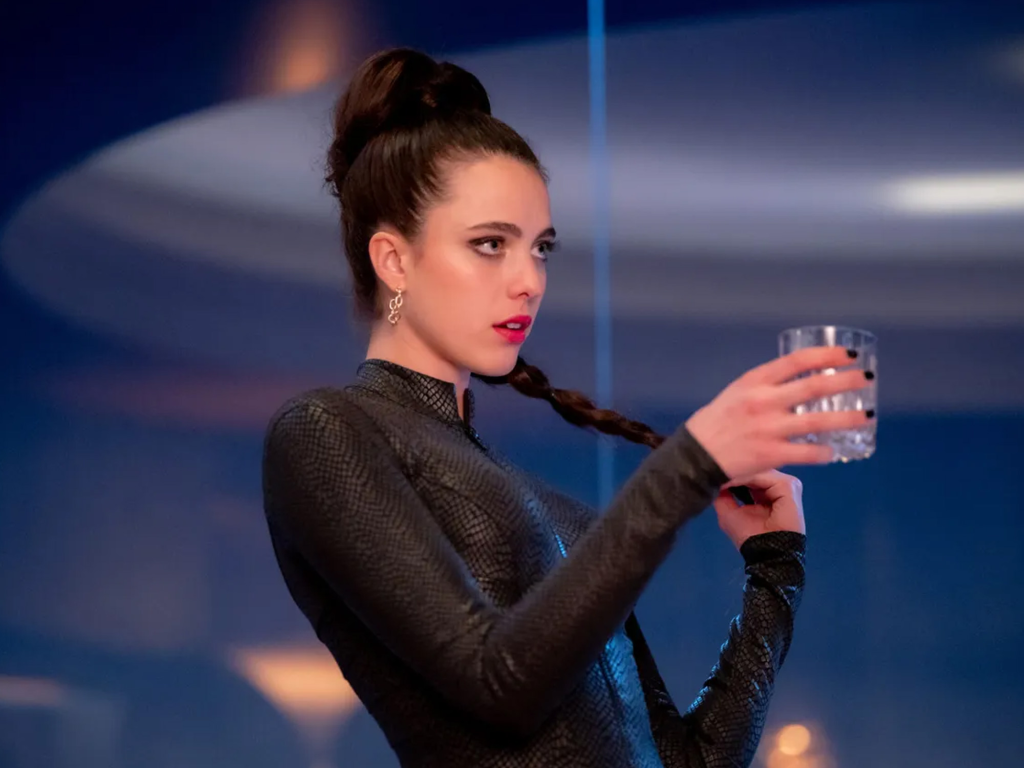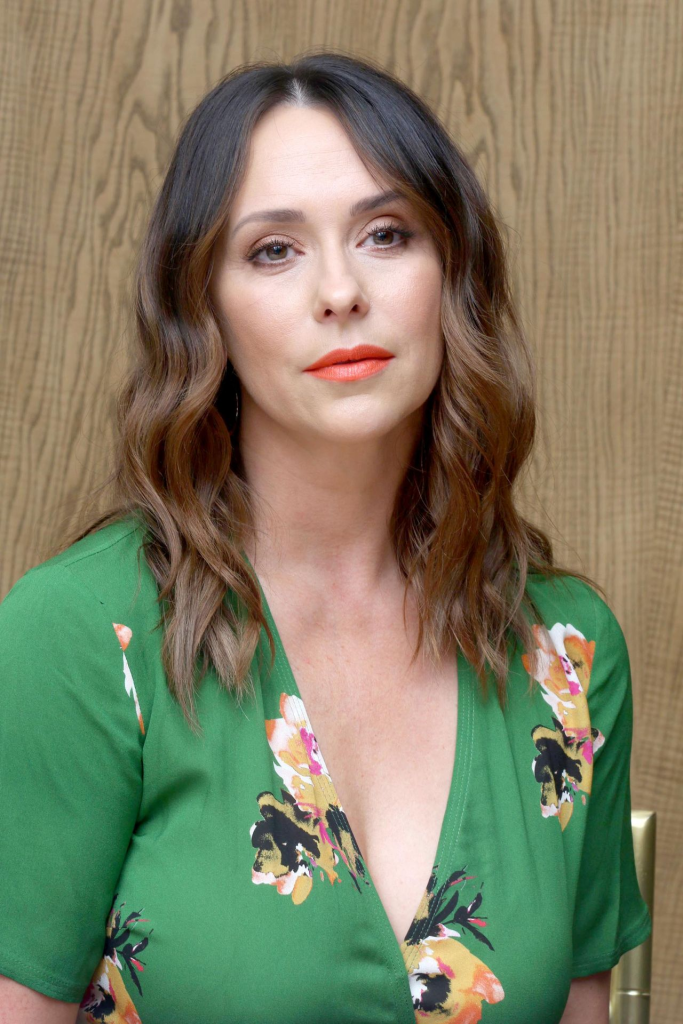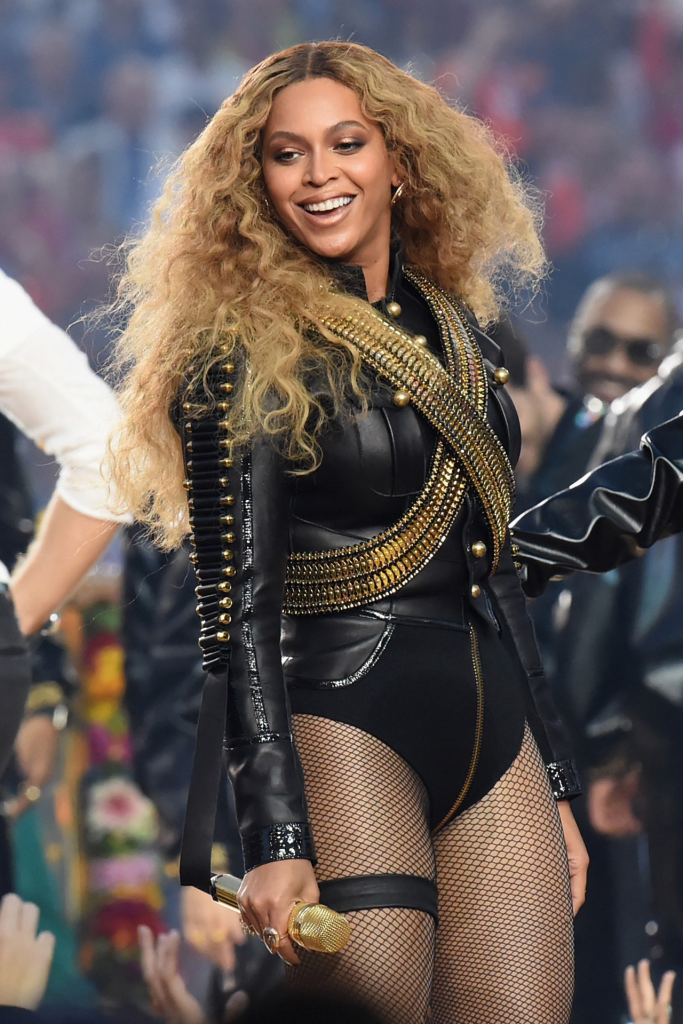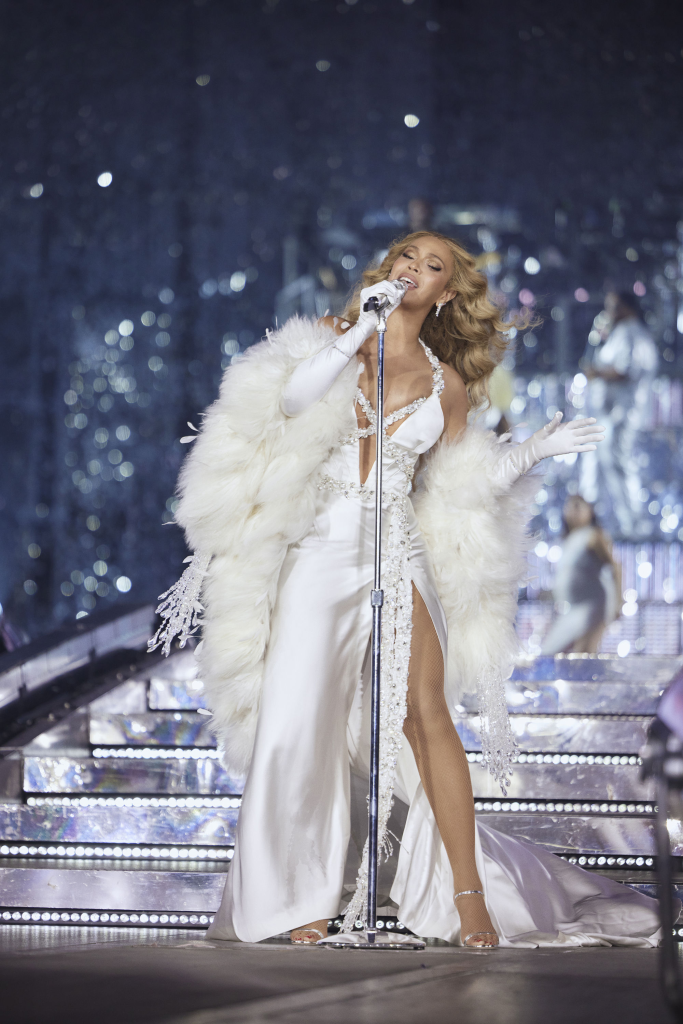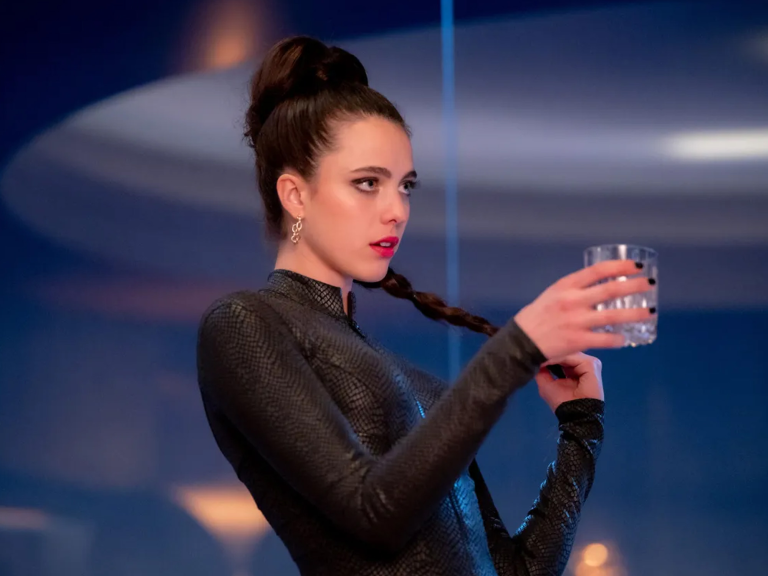In the fourth episode of Fallout, we meet the Ghoul (Walton Goggins), a bounty hunter who drags his captive, Lucy (Ella Purnell), across the desolate, sun-scorched wasteland of post-apocalyptic California. Once human, the Ghoul has been mutated by radiation and has spent 219 years building his reputation as a ruthless hunter. In contrast, Lucy is new to this harsh world, having grown up in the safety of Vault 33, a shelter for those who fled underground before the war. She believes in kindness and selflessness, even trying to appeal to the Ghoul by invoking the Golden Rule, but it falls flat.
When the Ghoul is briefly distracted, Lucy seizes the moment and escapes. This leads to a chaotic struggle where she manages to bite off his finger, and in retaliation, he cuts off hers. Surprisingly, he acknowledges her fierce spirit, saying, “Now that right there is the closest thing we’ve had to an honest exchange so far.”

This interaction highlights a central theme of Fallout: if a nihilist and an optimist can find common ground, there might still be hope for humanity. Adapted from the popular video game series by Lisa Joy and Jonathan Nolan of Westworld, this eight-episode series explores survival through moral and ethical lenses. Fans of the game will recognize the vivid world, but newcomers can still enjoy the dark humor and compelling storytelling.
The show kicks off with “The End” flashing on screen, taking us to the year 2077 in an alternate America where 1950s culture and its patriotic fervor persist. During a child’s birthday party in Los Angeles, actor Cooper Howard (Goggins) witnesses the world collapse as nuclear bombs drop, a result of a decade-long resource war. Fast forward two centuries, and Lucy, motivated by a need for answers, ventures to the dangerous surface world where she encounters terrifying creatures like the Ghoul, giant cockroaches, and a monstrous lizard known as a Gulper.
Fallout paints a picture of a divided society, where every group views the others as cult-like. Before the war, supporters of the military-industrial complex were labeled warmongers, while the opposition was called communists. In the aftermath, surface dwellers see Vault residents like Lucy as either brainwashed or cowardly. The wasteland becomes a battleground for factions like the Brotherhood of Steel, a violent military group, and Moldaver (Sarita Choudhury), a madwoman leading an armed cult, both claiming to know how to save humanity, often through bloodshed.
Lucy MacLean stands out as the only one who believes in working for the greater good, even as the Ghoul taunts her about becoming a killer. Her journey explores the loss of innocence while showing how her altruism impacts others, especially Maximus (Aaron Moten), an orphan in the Brotherhood of Man who has learned to see everyone as an enemy. Through their unexpected romance, Lucy teaches Maximus about the importance of community: “In the vaults, we recognize that we all need each other.”
The show’s mythology is rich, and as a newcomer to the franchise, I found myself relying on online resources to fill in gaps about terms like Pip-Boy and why bottle caps are used as currency. There are also intriguing characters like Wilzig (Michael Emerson) from a military-run organization called the Enclave, and Lucy’s brother, Norm (Moisés Arias), who uncovers unsettling truths about the Vaults.
Despite its serious themes, Fallout doesn’t shy away from humor. Showrunners Geneva Robertson-Dworet and Graham Wagner blend lighthearted moments with weighty topics like xenophobia and the corrupting power of capitalism. Lucy serves as the audience’s lens into this world, but the series avoids championing any single ideology. Even the so-called good guys harbor biases, illustrated by a Vault overseer who complains about surface dwellers, saying, “If you want to get elected, you have to ‘respect their traditions’ and ‘tolerate them.’”
The cast shines, with Goggins delivering a standout performance as the charming yet ruthless Ghoul. Purnell brings a blend of naivety and self-awareness to Lucy, while Moten’s Maximus is endearingly clueless, and Arias adds a layer of cynicism as Norm, who feels lost in his purpose.
Unlike many shows that hold back information, Fallout overloads viewers with details in its season finale. Prime Video released all eight episodes at once, which might have benefited from a weekly rollout to allow fans time to digest the intricate storylines. But there’s no one right way to tell a story about the end of the world. Grade: B+
All eight episodes of Fallout are now streaming on Prime Video.



